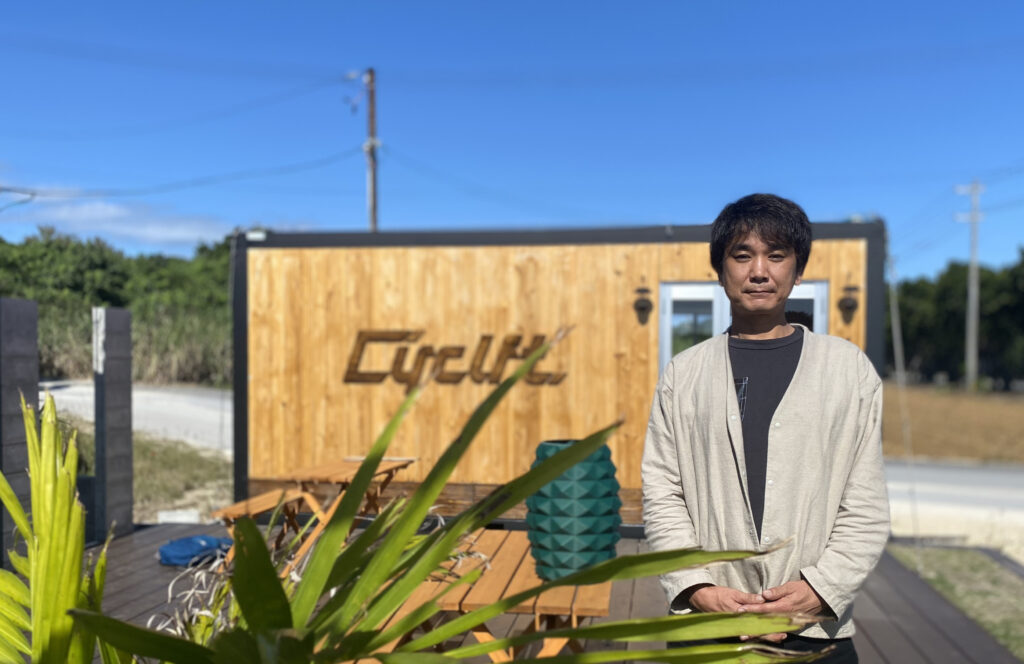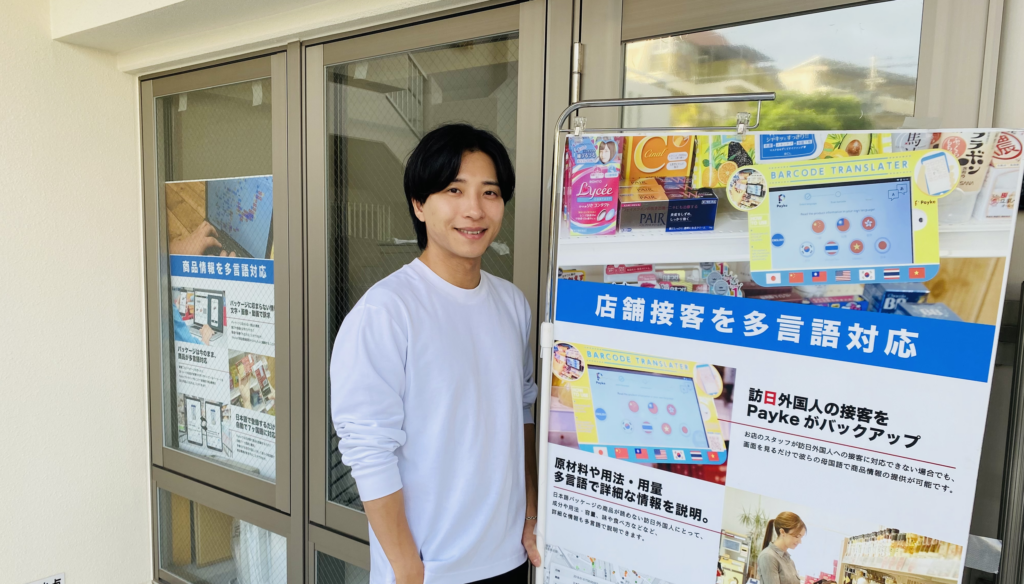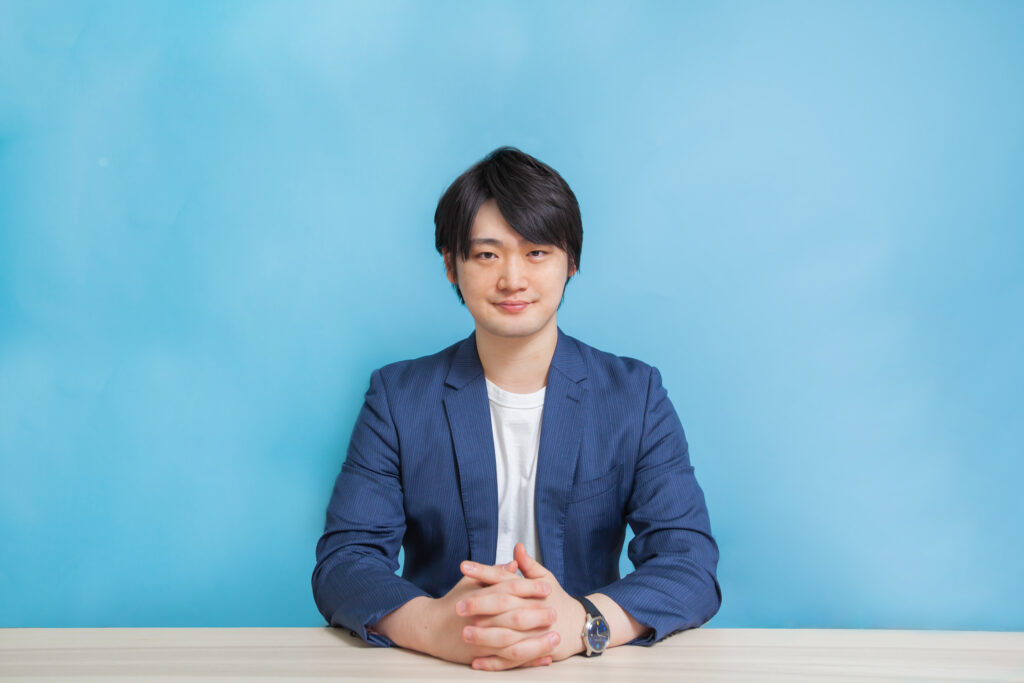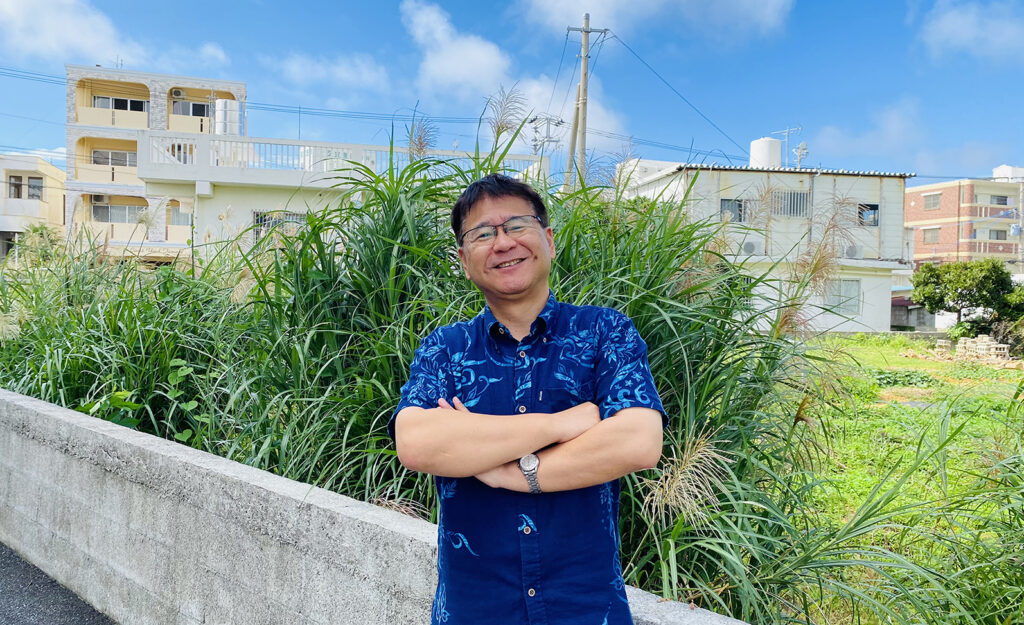As memories of the quiet period during the COVID-19 pandemic fade, Ishigaki Island in Okinawa Prefecture is bustling with tourists. During the peak tourist season, you hear complaints like ‘I can’t find a rental car.’ Cyclaft Rent-a-Car opened in Shiraho near the airport in 2023 to meet these demands. This is not just a car rental service. It intertwines a rental business with solutions to social and environmental issues, embodying a new form of social business.
We spoke with the CEO, Ken Fujimoto, to discuss his new rental business, upcoming projects, conceptual frameworks, and the challenges he faced.
A Novel Concept: Car Rental & Upcycling at the Tourism Information Center
Ishigaki Island and the surrounding Yaeyama Islands are known for their blue sea and white sandy beaches. But despite the beautiful nature, the marine debris accumulated along the coast is staggeringly high. In a 2020 survey, approximately 3,500 cubic meters of waste washed ashore on the Yaeyama beaches. The collection heavily relies on volunteers, and most of the gathered waste is unused. The disposal costs also burden the local municipalities.
Cyclaft Rent-a-Car is in a prime location along the National Route, about a 3-minute drive from the Painushima Ishigaki Airport. The website emphasizes the upcycling workshop, setting it apart from typical car rentals. Inside the rental office, you’ll see telescopes available for rent and eye-catching decorations made from marine debris, such as lamps and wooden objects.
“For visitors, the first point of contact when they arrive on the island is often the car rental. That’s when we hand them garbage bags and ask, ‘If you visit the beach, please pick up the trash.’ The plastic waste they bring back when returning the car is processed, which is then made into coasters and keychains that we give them. Our business model is that visitors ultimately engage in ecotourism through picking up trash that becomes a souvenir from the island through the car rental,” says Fujimoto.
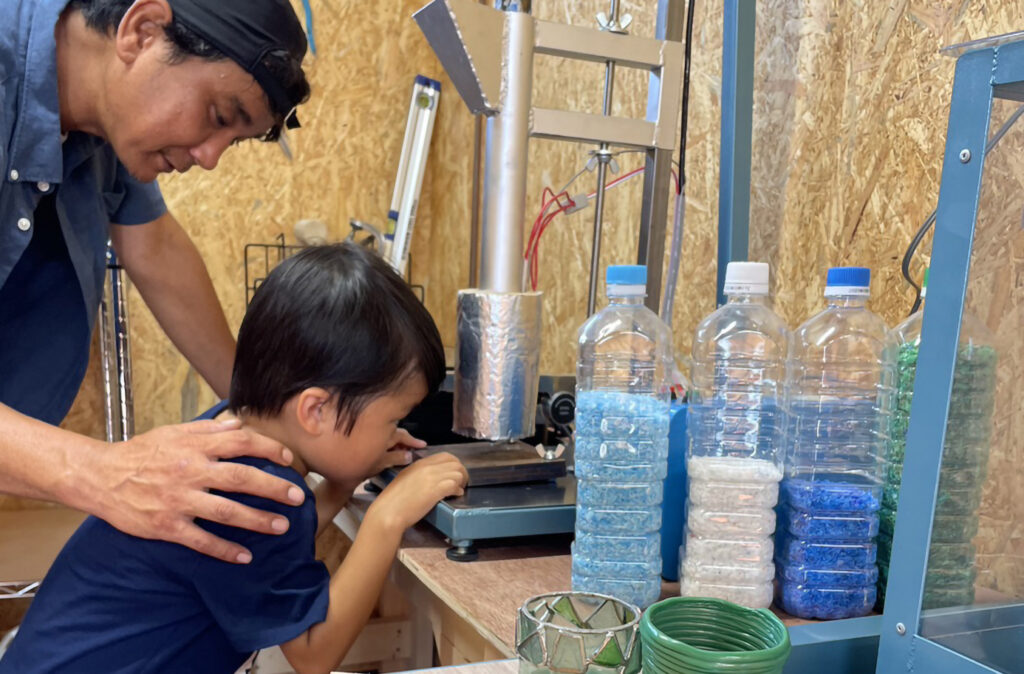
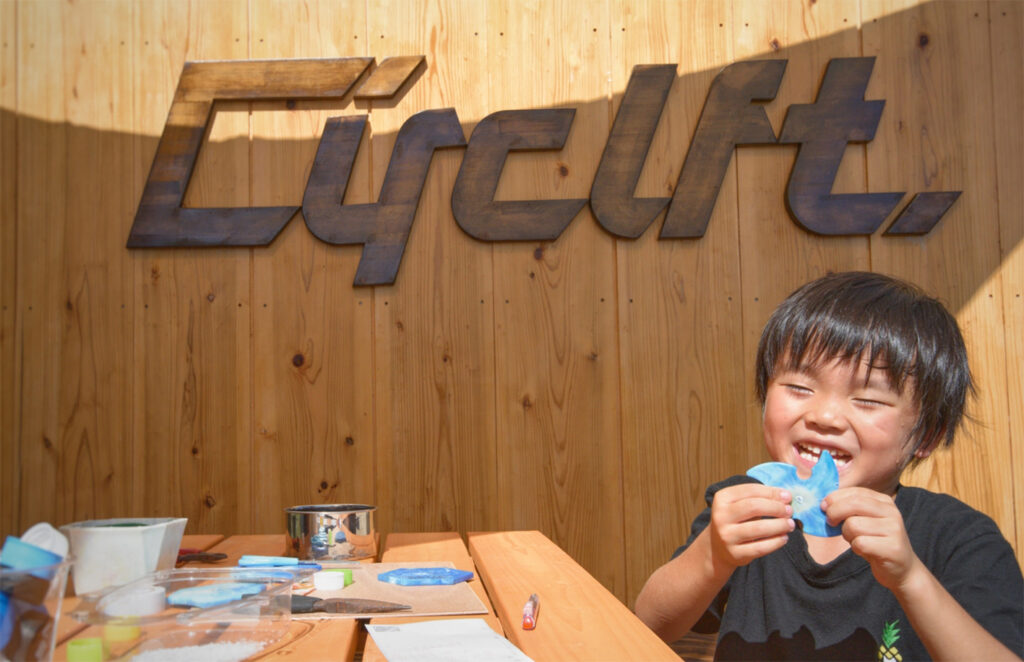
Establishing a Profit-Generating Social Business Model
Upcycling is commonly perceived as an unprofitable business. However, the company envisions building a new social business model, using the rental business and car rentals as a foothold. The business also includes promoting “bio-toilets,” a venture that Fujimoto has been involved in since his previous time in Tokyo. The toilet, which decomposes and processes human waste through the powerful action of microorganisms, is characterized by its ability to operate without water and maintenance.
“There are many maritime businesses in Yaeyama, but some that operate boats dump human waste directly into the sea. We want to promote bio-toilets to these businesses to prevent further harm to the coral reefs. We’re also looking for other opportunities, like installing bio-toilets on agricultural lands to use the decomposed waste as fertilizer. Thanks to a collaborative project with the Japanese Environmental Agency, Taketomi Townhall, and Cyclaft, we have installed a bio toilet at the Pinaisara Falls on Iriomote Island.”
Now in its fourth year since its installation, it’s operating smoothly without issues. As it does not pollute the surrounding environment, it is a toilet fitting for an island designated as a World Natural Heritage site.
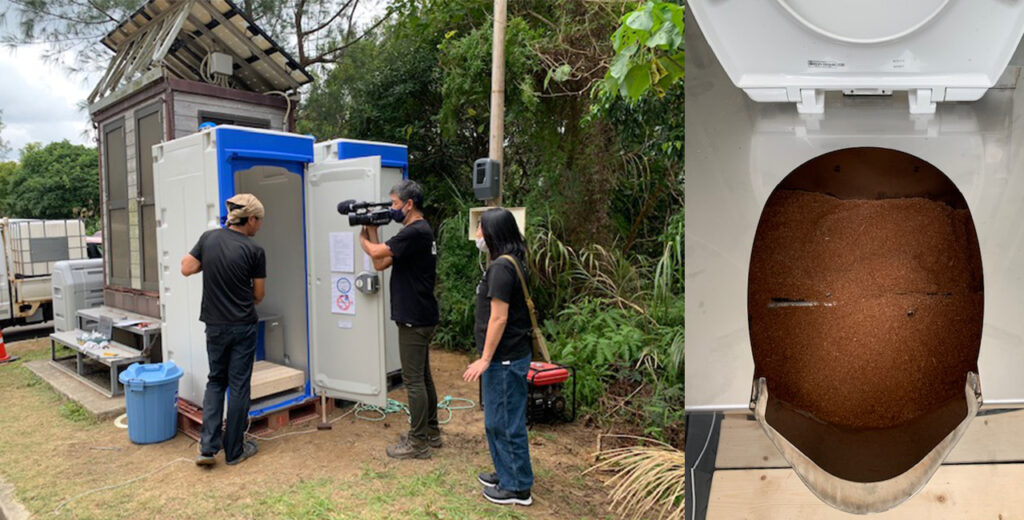
Balancing Analog and Digital
Aiming for Knowledge Sharing in Upcycling
Their second business involves full-fledged upcycling and the development of equipment and methods for upcycling. The immediate goal is to sell upcycled products made from pallets used for inter-island transportation. Pallets are plastic bases for loading goods, essential for forklift operations. However, these pallets are piled up and abandoned at the port of Iriomote Island, a World Natural Heritage site.
“We are thinking of reshaping these pallets into materials that can be used similarly to wood or formwork. Of course, it’s possible to reshape them using machinery, but we want to create a simple and low cost solution that can be used on remote islands. We wish to then share this solution with others, as hoarding knowledge and inventions won’t result in anything.”
Rather than relying on donations or volunteers, Fujimoto emphasizes the importance of generating profit as a business. His proactive nature cannot resist taking action when he comes up with an idea. He is simultaneously working on developing composite materials with CNF (Cellulose Nanofiber: a highly nanostructured biomass material). He plans to create reinforced plastic using bagasse from sugarcane and marine plastic to make every day goods for sale.
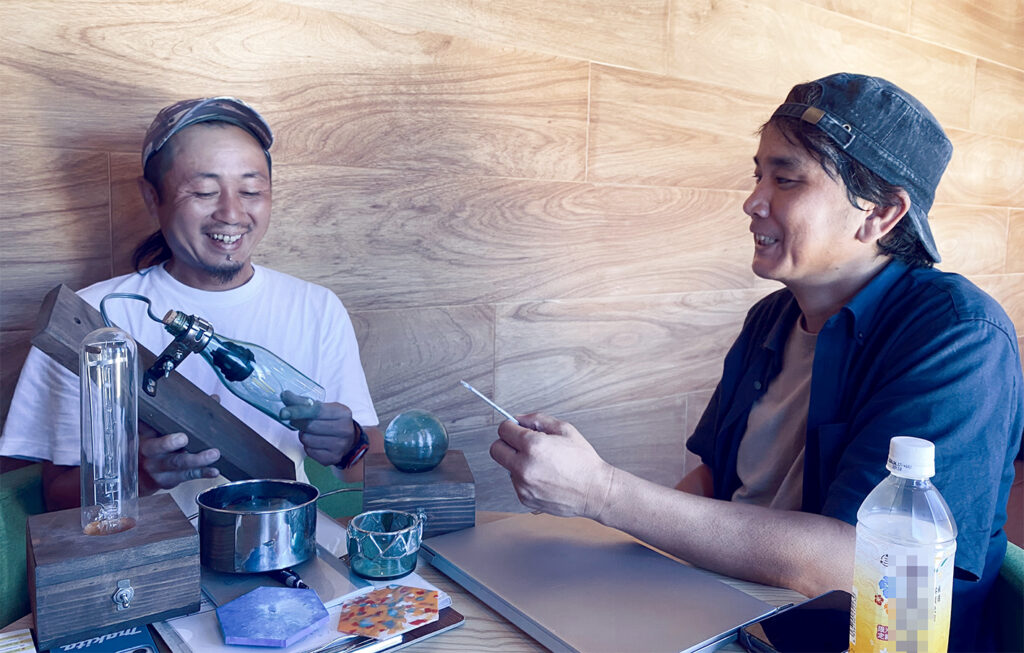
Returning Profits to the Island and Creating a Future
Their third project is supporting children’s education. With the rental and upcycling business profits, they plan to conduct experiments on solar power, hydropower, wind power, and biogas and hold astronomy programs for children.
Fujimoto, a father, and Ryoichi Debori, one of the company founders involved in children’s education, are both passionate about environmental education for the island’s children.
“There are no educational facilities like museums on Ishigaki Island, and educational equipment in schools on remote islands is severely lacking. Through these endeavors, we hope to expand the children’s future,” says Fujimoto.

Fujimoto’s main occupation is in the production and sale of salt on Ishigaki Island. Although he’s relocating the factory to a separate location within Taketomi due to circumstances, his concern for the marine debris accumulating along the seashore led to his current business. Through an introduction from an acquaintance, he met Debori, and their conversation sparked the question, “can we do something interesting and environmentally friendly?” They decided to establish a business to grow upcycling into a profitable venture.

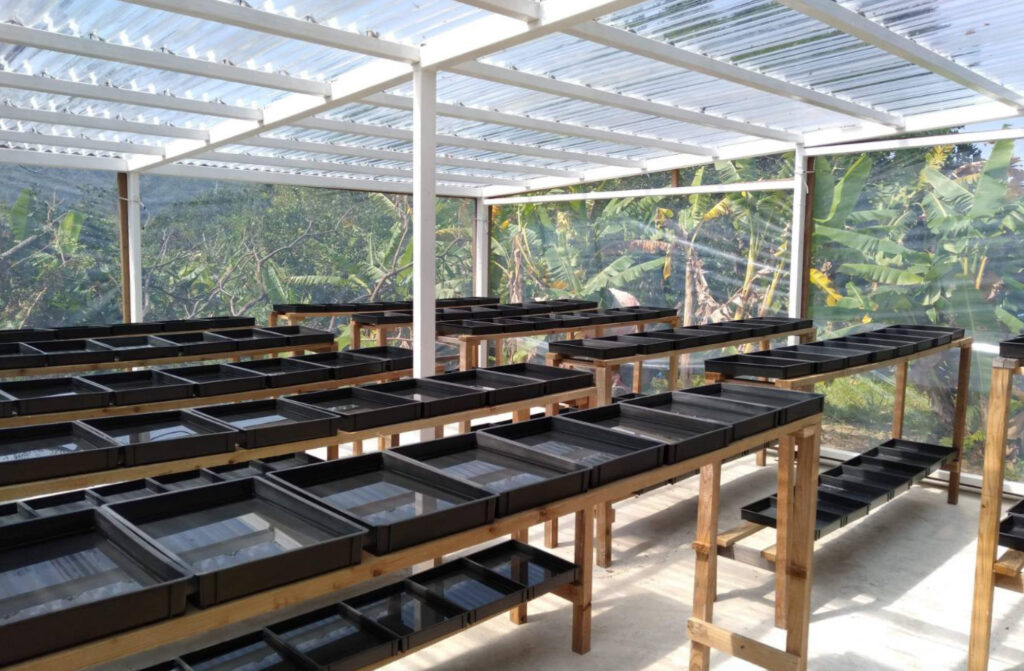
Debori is a cyclist and entrepreneur who traveled to 115 countries for a decade without returning to Japan, making his way around the world via bicycle across five continents. After his return, he relocated to Ishigaki Island and started upcycling when he noticed the trash on the beach shores.
“I’ve seen towns full of garbage in Africa and witnessed many facilities and equipment built with aid from developed countries that couldn’t be maintained. That’s why we aim for solutions that can be easily operated by locals anywhere in the world and can generate profits. We want to establish such devices and methods, and eventually, we’d like to export them to developing countries struggling with plastic waste,” says Debori.
The collaboration of Fujimoto, who demonstrates creativity and initiative, and Debori, who has a broad understanding of global affairs, shape Cyclaft’s business. The day when “Yaeyama-style upcycling” from the southernmost islands of Japan spreads worldwide may not be far away.
Interview and Japanese Text by Minako Narabayashi

